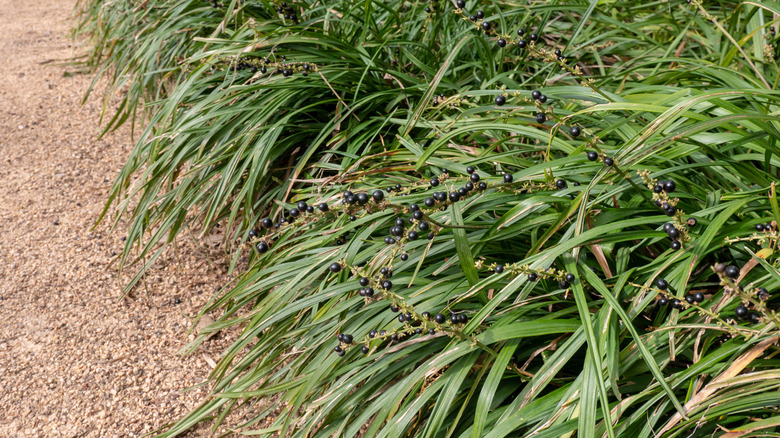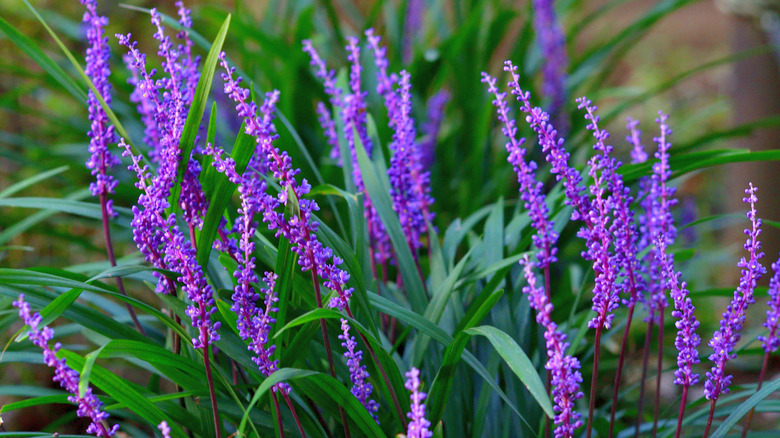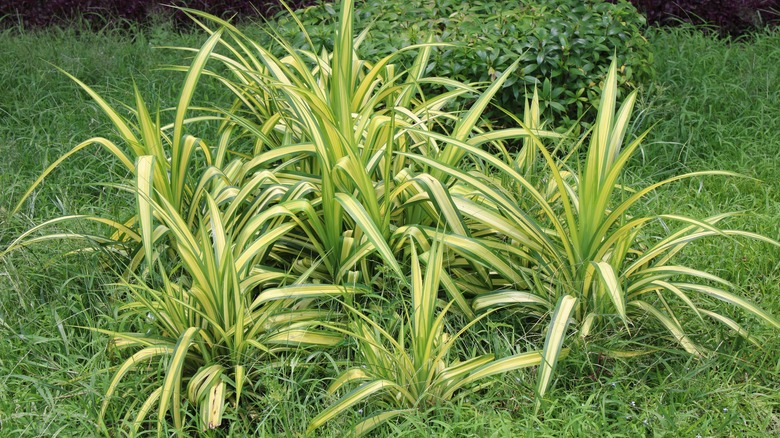The Best Method For Trimming The Monkey Grass Border Along Your Sidewalk
Monkey grass is a beautiful perennial ground cover that is often used in landscape borders and beds. Monkey grass is also great for preventing erosion along driveways and sidewalks. Many varieties of this perennial feature gorgeous lavender-colored or bright white flowers that really enhance landscapes. Officially known as Liriope, monkey grass is native to Southeast Asia, but grown widely in the southern regions of the United States.
This ground cover is popular with newer gardeners because it's generally easy to care for. But you will want to know how to trim monkey grass back if you use it as a border. Liriope can spread quickly and take over your yard if it's not pruned. In fact, monkey grass is considered to be an invasive species in some areas because it spreads so quickly. To keep your monkey grass looking neat, it needs to be trimmed regularly. Trimming also gets rid of old foliage, which will make your monkey grass look nice and fresh.
How to trim back monkey grass
Monkey grass should be trimmed in the late winter or early spring before new growth has begun. Pruning during this time will help get rid of old leaves and allow new ones to fill in. You can cut larger areas of monkey grass with your lawn mower, as long as new sprouts have not emerged yet. Just make sure your mower is set to the highest setting and that the blades are sharp. Push the mower through the monkey grass very slowly. Cut the monkey grass back to about 3 inches.
String and hedge trimmers also work very well for cutting monkey grass — especially if you have a smaller area of ground cover. You can also cut your monkey grass with a pair of grass-trimming shears. Liriope responds well to manual trimming. Shears work well if you don't have a large area of the ground cover or if sprouts have begun to appear. Whichever tool you use, cut to 3 inches or less.
What to do after trimming monkey grass
There are a few things that you'll want to do after pruning monkey grass to make sure it looks great. Weeds can hide among your monkey grass plants. So, take some time to remove as many weeds as possible. Hand-weeding is best, but you can also use a post-emergent weed killer. Just make sure you don't spray the monkey grass. Next, spruce up your border by taking out dead pieces of monkey grass.
After trimming, you'll also want to fertilize your monkey grass with a slow-release tree and shrub fertilizer. You can also use an organic plant food. You should only need to fertilize once per year after trimming. Next, apply approximately two to four inches of garden compost or mulch. Mulch will help prevent weeds and keep the soil moist. Last, examine the plants for snails and slugs. These insects can be a nuisance for monkey grass, so remove them if you come across any.


